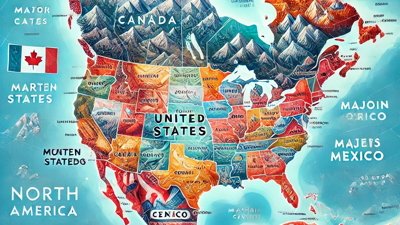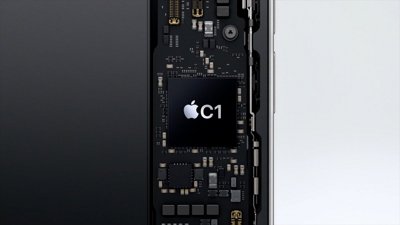The U.S. Federal Trade Commission has made a formal recommendation to its commissioners to sue Google for violation of antitrust laws after the search giant attempted to block the sale of competitors' products using standards essential patents.
According to a report by Bloomberg, the recommendation to sue Google must still be approved by a majority of the agency's five commissioners. The report noted, however, that the majority are already "inclined to sue," but aren't likely to act until after the U.S. presidential election next week.
In July, the FTC began a civil investigation into Google's efforts to block competitors over standards patents already committed to so called "Fair, Reasonable and Nondiscriminatory" licensing.
A very expensive defense for Android infringement
Google has publicly opposed the use of patents against its Android operating system program, and launched an initiative in 2010 intended to derail public support for H.264, calling the technology patent encumbered" and recommending its own freely obtainable WebM as an alternative. Google has also charged Apple in the court of public opinion with abusing patents, which it has repeatedly characterized as being limited to "rectangles and rounded corners."
However, after paying $12.5 billion to acquire Motorola Mobility, Google has made no changes to the struggling hardware maker's efforts to block the sale of products by Apple and Microsoft, leveraging its own H.264 patents as a weapon to do so. Motorola has portrayed its lawsuits as an effort to "defend" Android against claims by Apple and Microsoft that Android infringes upon their patents, while also describing its standard essential patents as the "one bullet" needed to kill its opponents.
Both Google and Samsung (which is pursuing a similar strategy of leveraging standards essential patents to "defend" against patent infringement) are facing investigation by U.S., Asian and European regulators. Bloomberg says the FTC has focused on Google's Motorola subsidiary, while Samsung is being investigated by the Justice Department.
Both Google and Samsung each demanded royalties from Apple of more than 2.25 percent of the total price of its iOS devices, and have filed lawsuits to block the sale of Apple's products unless it pays. Both companies have argued that because they have patented technology that is required to develop devices that work on mobile networks or work with industry standard video, they can set any price for them, threatening to block the sale of their devices if they don't.
However, those patents have already been committed to FRAND licensing terms. Apple is suing Motorola and Samsung over infringement of private patents that are not part of a standard; Apple has said it simply wants to stop Android licensees from using its ideas. Similar lawsuits against Android licensees by Microsoft have sought conventional licensing terms, which the majority of Android licensees have already agreed to apart from Google's Motorola and Samsung.
After the FTC announced plans to investigate Google's patent abuse, its Motorola subsidiary dropped its entire second International Trade Commission complaint against Apple. Two weeks later, Google was said to be contemplating a settlement with the FTC over the abuse of its FRAND patents.
Google's other FTC issues
Google is also facing a separate FTC antitrust investigation regarding alleged anticompetitive web-based search result rankings and issues with Android handset makers. A similar recommendation to sue has been made, but no action has yet been announced.
In August, four of the five FTC commissioners agreed to a $22.5 million fine that Google agreed to pay for ignoring security settings in Safari while telling users that the settings were being respected. The only dissenting vote, by Commissioner J. Thomas Rosch, argued that the FTC's settlement with Google was not in the public interest because it allowed Google to deny liability.
That fine was described as the largest the FTC had ever demanded from a company, although it had earlier taken $500 million from Google in a forfeiture settlement after the search giant allowed a Canadian pharmacy to illegally advertise drugs in the United States, supporting the illegal import of prescription drugs and controlled substances into the country.
 Daniel Eran Dilger
Daniel Eran Dilger

-xl-(1)-xl-xl-m.jpg)





-m.jpg)






 Amber Neely
Amber Neely
 Wesley Hilliard
Wesley Hilliard
 Marko Zivkovic
Marko Zivkovic
 Andrew Orr
Andrew Orr
 Malcolm Owen
Malcolm Owen


 Andrew O'Hara
Andrew O'Hara







26 Comments
This may be my last Forstall use, considering. I just couldn't pass up the face.
Apple is such a patent troll, they are abusing their market dominance to bully other companies...............oh................wait
Ho hum, another one of these coming up.
Google can add this cost to whatever they have already racked up as a potential write down on the Motorola purchase next year.
I think that Google could have stopped this from happening but decided to let this practise to continue as an experiment, to see how the regulators worldwide would react (or the courts). Abloddy expensive experiment.
I spent a day with a former Moto exec earlier this week. He was partly responsible for getting the company into China and developing it's Asian business. Although the meeting was completely unrelated, we ended up chatting about the demise of Moto and he explained how frustrating it was to deal with the strategic decisions made over the last 15 years. Such a shame that a really interesting and capable company was pissed away by so many poor decisions.
Although his current company isn't worth worth 12.5 b US it is approaching it and and he built that in less than 5 years in a totally different market and in reality Moto wasn't worth anything like that figure when it was sold anyway!
Serves them right.